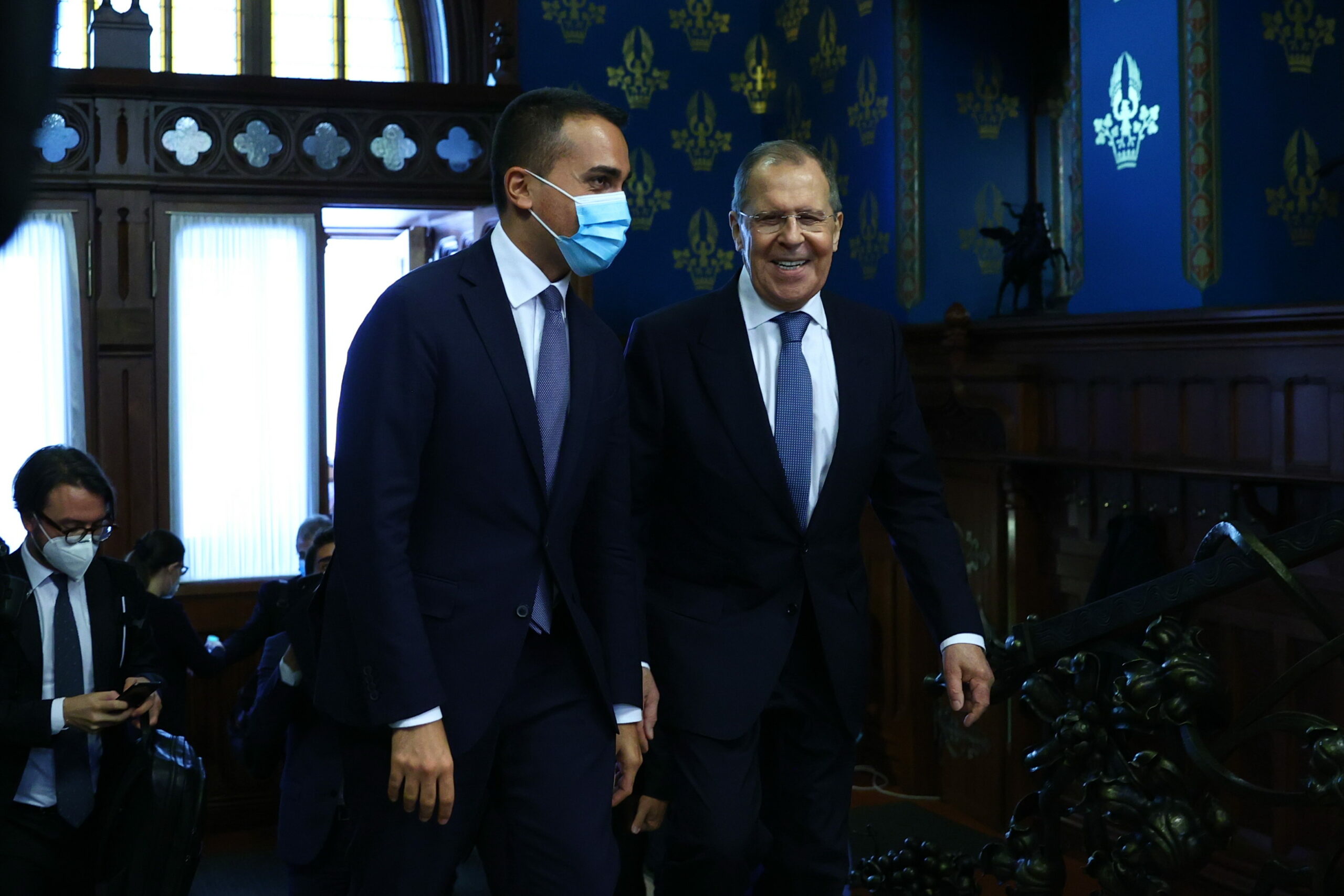Italian foreign minister Luigi Di Maio, 34, travelled to Moscow on Wednesday to meet with his Russian counterpart Sergej Lavrov and with the minister of trade and industry Denis Manturov.
The institutional visit happened less than two days after EU sanctions dropped on members of the Russian government over the poisoning of Russian opposition leader, Alexei Navalny.
To this day, Moscow denies any responsibility and disregards the need for a comprehensive investigation, which has been called for by the EU.
Despite being somewhat closer to the Russian Federation than most European nations, Italy greenlighted the sanctions. As the EU’s High Commissioner Josep Borrell put it, “there was a complete acceptance by all member states, no one opposed any kind of reluctancy.”
During the presser that followed his talks with Mr Di Maio, Mr Lavrov expressed his worry regarding “Brussels’ hostile steps” towards Russia, especially by some “Russophobe” EU member states that “hinder cooperation.” Regardless, he praised Rome for its “attitude and constructive position”.
The Italian foreign minister answered in kind, replying that Italy “remains among those countries that most staunchly support dialogue and cooperation with Russia,” and would spend its efforts in making sure that the gap between Russia and the EU does not widen.
“It takes a moment to close a door, but it takes decades to reopen it,” quipped Mr Di Maio.
However, he then took the quasi-unprecedented step of bringing up the Navalny matter in the face a Russian official – something that Italy’s prime minister Giuseppe Conte has failed to do so far.
He did so by underscoring that the dialogue he was supportive of also serves as a mean for conflict resolution in conflict-ridden areas of the globe. “We are well aware of the problems and differences that exist in the relationship between the Eu and Russia,” he said, quipping that the Navalny matter “must not remain unpunished.”
Despite the hard-line stance on the Navalny poisoning, “Italy does not want to isolate Russia;” Mr Di Maio explained that his talks with Mr Manturov resulted in the brokering of a series of commercial deals between the two countries.
Other dossiers that would require Russia’s collaboration, he stated, are the Belarus political crisis, Libya and Nagorno-Karabakh, all hotspots of conflict where Moscow wields a significant amount of influence.
The young foreign minister seems to be sticking by Italy’s mantra of balance and soft power-based relations, walking the thin line between maintaining open communications with Russia and supporting the respect of the rule of law and human rights.
This approach allows Rome to exert its influence and foster relations in all conditions, although it may not be as assertive as more uncompromising EU nations.
Following a phone call between prime minister Conte and Russian president Vladimir Putin in the early stages of the pandemic, Russia sent over a military contingent to aid Italy. The episode speaks volumes about the friendly relation enjoyed by the two leaders.
Nonetheless, the rest of the Italian political establishment seems to be backtracking on its love for Russia, while strengthening its ties with traditional Atlantic allies – the US first and foremost.








